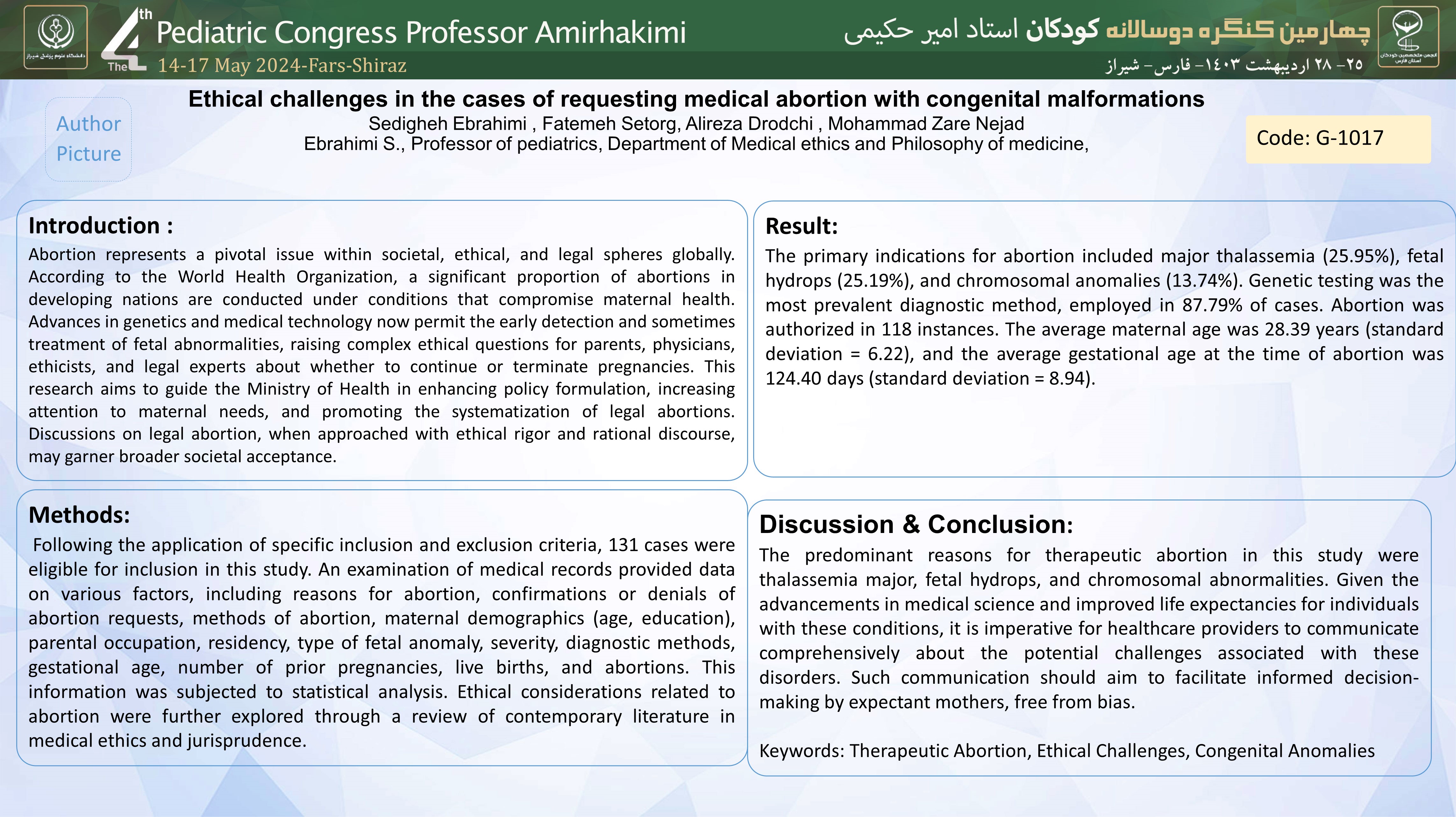چالشهای اخلاقی درموارد تقاضای سقط جنین درمانی با ناهنجاری مادرزادی درمراجعین پزشکی قانونی
کد: G-1017
نویسندگان: دکتر صدیقه ابراهیمی دکترفاطمه سترگ دکتر محمد زارع نژاد دکتر علی رضا درودچی © ℗
زمان بندی: زمان بندی نشده!
دانلود: دانلود پوستر
خلاصه مقاله:
خلاصه مقاله
Background: Abortion represents a pivotal issue within societal, ethical, and legal spheres globally. According to the World Health Organization, a significant proportion of abortions in developing nations are conducted under conditions that compromise maternal health. Advances in genetics and medical technology now permit the early detection and sometimes treatment of fetal abnormalities, raising complex ethical questions for parents, physicians, ethicists, and legal experts about whether to continue or terminate pregnancies. This research aims to guide the Ministry of Health in enhancing policy formulation, increasing attention to maternal needs, and promoting the systematization of legal abortions. Discussions on legal abortion, when approached with ethical rigor and rational discourse, may garner broader societal acceptance. Methodology: Following the application of specific inclusion and exclusion criteria, 131 cases were eligible for inclusion in this study. An examination of medical records provided data on various factors, including reasons for abortion, confirmations or denials of abortion requests, methods of abortion, maternal demographics (age, education), parental occupation, residency, type of fetal anomaly, severity, diagnostic methods, gestational age, number of prior pregnancies, live births, and abortions. This information was subjected to statistical analysis. Ethical considerations related to abortion were further explored through a review of contemporary literature in medical ethics and jurisprudence. Results: The primary indications for abortion included major thalassemia (25.95%), fetal hydrops (25.19%), and chromosomal anomalies (13.74%). Genetic testing was the most prevalent diagnostic method, employed in 87.79% of cases. Abortion was authorized in 118 instances. The average maternal age was 28.39 years (standard deviation = 6.22), and the average gestational age at the time of abortion was 124.40 days (standard deviation = 8.94). Conclusion: The predominant reasons for therapeutic abortion in this study were thalassemia major, fetal hydrops, and chromosomal abnormalities. Given the advancements in medical science and improved life expectancies for individuals with these conditions, it is imperative for healthcare providers to communicate comprehensively about the potential challenges associated with these disorders. Such communication should aim to facilitate informed decision-making by expectant mothers, free from bias. Keywords: Therapeutic Abortion, Ethical Challenges, Congenital Anomalies
